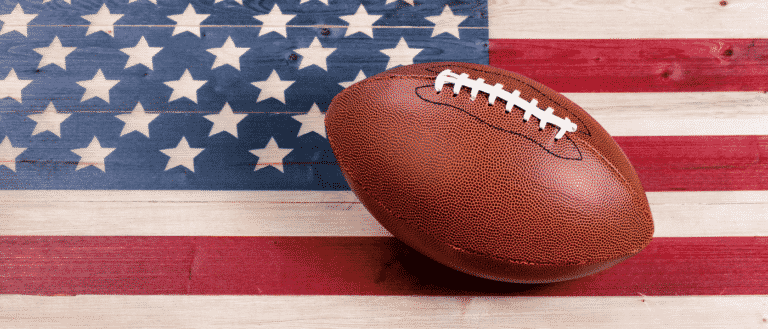YouGov Poll Finds Half Of Americans Do Not Know If Sports Betting Is Legal

A new YouGov poll delved into two aspects of the US sports betting industry: advertising and consumer awareness. The results will be somewhat shocking to those living in the sports betting and gambling bubble but augurs well with the historical data.
The five big takeaways (from my perspective) are:
- 46% of Americans don’t know if sports betting is legal in their state
- More than half (54%) are concerned about the amount of advertising
- Only 8% of respondents find sports betting advertising interesting
- Just 14% of respondents have confidence in responsible gambling measures
- 34% support online sports betting in their state
Methodology
Before delving into each of these findings, here is the methodology YouGov uses.
“YouGov interviewed a representative sample of 2,233 members of the US public aged 18+. Online surveys were completed between November 19-23, 2021, using YouGov RealTime, our daily Omnibus research service. Insights reported here are drawn from YouGov’s existing panel of 5+ million in the US.”
Consumer Awareness
As noted above, nearly half of the respondents to the YouGov poll aren’t sure if sports betting is legal in their state. Another data point that points to a lack of consumer awareness was that 45% of respondents in states with legal online sports betting didn’t know if it was legal or not.
Per the YouGov poll:
“Of those living in a state where a form of sports betting is legal, only 43% are aware of it. Meanwhile 30% in states where sports betting is illegal believe it is allowed. In online legal states, awareness rises to 54% vs just 35% for retail-only states.”
A separate question in the YouGov survey helps explain this ignorance. When asked about the amount of advertising, 68% of non-bettors either don’t take much notice of sports betting advertising (30%) or haven’t seen any (38%).
Those numbers shouldn’t be surprising, considering roughly the same percentage indicated an interest in sports betting in a .
Putting all these pieces together, it seems half the population tunes out sports betting.
However, sports betting is in much better shape than online casino was in its infancy. Early on in the process, then-888-CEO Brian Mattingly relayed that the company’s internal polling revealed just 10% of New Jersians knew online gambling was legal.
Advertising and Responsible Gambling Concerns
Digging deeper into the advertising responses, more than half of respondents expressed concerns about the amount of advertising, with 11% saying there is far too much of it. That lines up with the 10% of respondents who said they saw 5+ ads per day.
When broken down into subgroups, 21% of bettors responded that there is far too much of it, while only 8% of non-bettors reacted similarly.
Just 8% of respondents seemed to have a favorable view of advertising, calling it “interesting.”
But once again, the poll results diverge when broken down to bettors and non-bettors, with 31% of bettors calling sports betting advertising “interesting, and just 3% of non-bettors saying the same.
On the responsible gambling front, a measly 14% said they were confident in sports betting brands’ responsible gaming policies.
Brand Awareness
The advertising seems to be benefitting the biggest spenders, but it also appears that companies with tighter purse strings are, to borrow a racing term, drafting. When asked to recall specific sports betting brands, DraftKings and FanDuel were the most often mentioned at 37% and 30%, respectively.
There is a steep drop to the next pairing of Caesars Sportsbook (19%) and BetMGM (16%).
After that is a sizable trail pack:
- Barstool (10%)
- FoxBet (9%)
- Golden Nugget Sportsbook (9%)
- Bet365 (9%)
- WynnBet (8%)
Interestingly, an offshore site snuck into the mix, as Bovada was recognized by 4% of respondents.
Online Support Is Quite Low
The final bit of information that caught my eye was attitudes towards legalization. While only 29% opposed legalization in their state, 25% responded they “didn’t know,” which indicates a sizable chunk of the population could be swayed either way.
That is more problematic for online betting, as 40% of respondents favored retail betting or a combination of retail and online betting. In contrast, only 34% favored online betting or a combination of online and retail betting. Just 5% were in favor of online-only betting.







